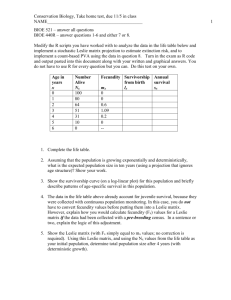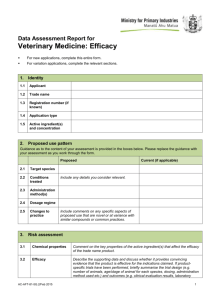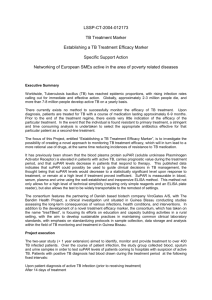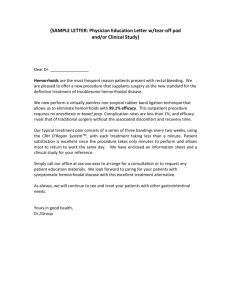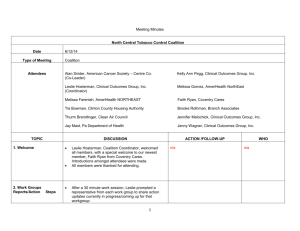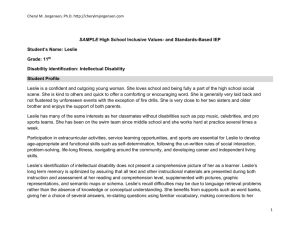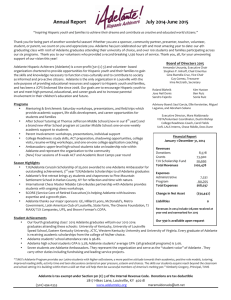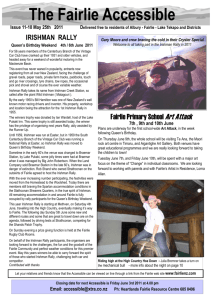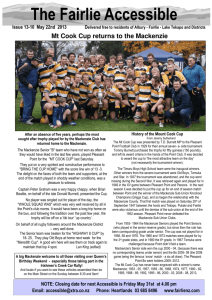Self-efficacy in a Natural Resource Field Studies Course
advertisement
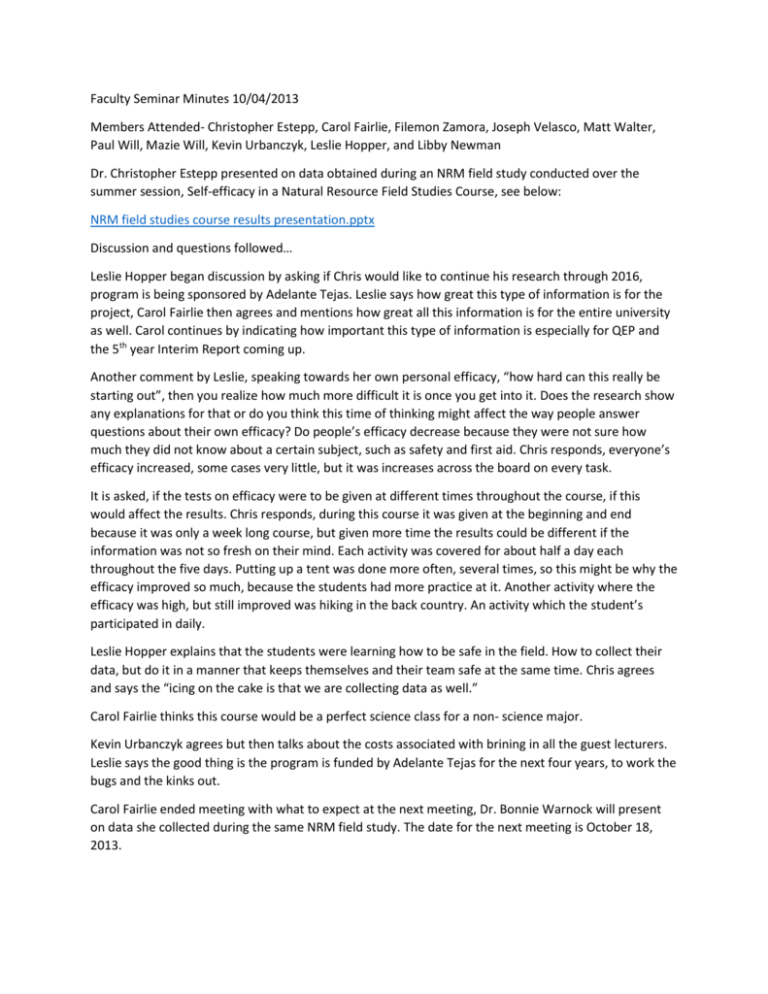
Faculty Seminar Minutes 10/04/2013 Members Attended- Christopher Estepp, Carol Fairlie, Filemon Zamora, Joseph Velasco, Matt Walter, Paul Will, Mazie Will, Kevin Urbanczyk, Leslie Hopper, and Libby Newman Dr. Christopher Estepp presented on data obtained during an NRM field study conducted over the summer session, Self-efficacy in a Natural Resource Field Studies Course, see below: NRM field studies course results presentation.pptx Discussion and questions followed… Leslie Hopper began discussion by asking if Chris would like to continue his research through 2016, program is being sponsored by Adelante Tejas. Leslie says how great this type of information is for the project, Carol Fairlie then agrees and mentions how great all this information is for the entire university as well. Carol continues by indicating how important this type of information is especially for QEP and the 5th year Interim Report coming up. Another comment by Leslie, speaking towards her own personal efficacy, “how hard can this really be starting out”, then you realize how much more difficult it is once you get into it. Does the research show any explanations for that or do you think this time of thinking might affect the way people answer questions about their own efficacy? Do people’s efficacy decrease because they were not sure how much they did not know about a certain subject, such as safety and first aid. Chris responds, everyone’s efficacy increased, some cases very little, but it was increases across the board on every task. It is asked, if the tests on efficacy were to be given at different times throughout the course, if this would affect the results. Chris responds, during this course it was given at the beginning and end because it was only a week long course, but given more time the results could be different if the information was not so fresh on their mind. Each activity was covered for about half a day each throughout the five days. Putting up a tent was done more often, several times, so this might be why the efficacy improved so much, because the students had more practice at it. Another activity where the efficacy was high, but still improved was hiking in the back country. An activity which the student’s participated in daily. Leslie Hopper explains that the students were learning how to be safe in the field. How to collect their data, but do it in a manner that keeps themselves and their team safe at the same time. Chris agrees and says the “icing on the cake is that we are collecting data as well.” Carol Fairlie thinks this course would be a perfect science class for a non- science major. Kevin Urbanczyk agrees but then talks about the costs associated with brining in all the guest lecturers. Leslie says the good thing is the program is funded by Adelante Tejas for the next four years, to work the bugs and the kinks out. Carol Fairlie ended meeting with what to expect at the next meeting, Dr. Bonnie Warnock will present on data she collected during the same NRM field study. The date for the next meeting is October 18, 2013.

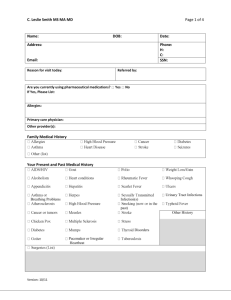
![Quality assurance in diagnostic radiology [Article in German] Hodler](http://s3.studylib.net/store/data/005827956_1-c129ff60612d01b6464fc1bb8f2734f1-300x300.png)
